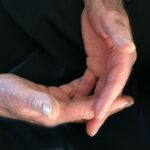Feel Off, Anxious or Empty? This Hormone Could Be the Real Cause
Anxiety doesn’t always start in the mind. For many men, it begins in the body—specifically, in their hormones. If you’ve ever asked yourself can low testosterone cause anxiety, the answer might surprise you. Science is revealing a powerful connection between declining testosterone levels and rising emotional instability, self-doubt, and mood swings.
Understanding Testosterone’s Role Beyond the Bedroom
Most people associate testosterone with sex drive, muscle mass, and aggression. But it also plays a vital role in mental health. Testosterone interacts with brain chemistry, particularly neurotransmitters like dopamine and serotonin—two key players in mood regulation and emotional resilience.
How Low Testosterone Triggers Anxiety Symptoms
When testosterone drops below optimal levels, men often report:
- Racing thoughts and mental overthinking
- Low motivation or loss of interest
- Social withdrawal or fear of confrontation
- Panic-like symptoms without clear triggers
- Sleep disruption and fatigue
These are not just psychological issues—they’re biochemical consequences of hormonal imbalance.
Research That Confirms the Connection
Numerous studies show a direct link between testosterone deficiency and increased anxiety. One 2020 study found that men with low testosterone had significantly higher anxiety and depression scores. Another clinical trial observed that testosterone replacement therapy (TRT) reduced anxiety in hypogonadal men.
Why Doctors Often Miss This
Most general practitioners focus on prescribing antidepressants or anti-anxiety medications without testing hormone levels. That’s why so many men stay stuck in a loop of pills and therapy with no real breakthrough. In many cases, the missing puzzle piece is testosterone.
Can Low Testosterone Cause Performance Anxiety?
Absolutely. In fact, low T and performance issues go hand-in-hand. If you struggle to maintain erections or feel pressure in the bedroom, you may be experiencing a hormonal disruption. Read more in our guide how to cure performance anxiety in bed.
Signs You Should Check Your Testosterone
If you’re dealing with persistent anxiety, ask yourself:
- Am I less confident than I used to be?
- Do I feel sluggish or mentally foggy?
- Is my sex drive lower than before?
- Have I gained fat, especially around the waist?
- Am I waking up less frequently with morning wood?
All of these are signs of low testosterone—and yes, they can directly contribute to feelings of anxiety and inadequacy.
How to Fix It Naturally
Before jumping into synthetic solutions, consider natural methods proven to support healthy testosterone and reduce anxiety at the root:
- Resistance Training: Lifting weights 3–5 times a week can significantly increase testosterone.
- Vitamin D: A daily dose of sunlight or high-quality supplements improves T levels and mood.
- Sleep: 7–9 hours of deep sleep is non-negotiable for hormonal balance.
- Diet: Eat healthy fats (like avocado and eggs) and avoid processed foods.
- Stress Management: Practice breathwork, meditation, and journaling.
Timing Matters: Use Your Hormones to Your Advantage
Testosterone isn’t static. It fluctuates daily, peaking in the morning. Understanding what time of day is testosterone highest can help you schedule activities that require confidence—like sex, workouts, or public speaking—during peak hours.
You’re Not Broken—You’re Out of Balance
If your anxiety doesn’t feel like the typical “mental health” kind—and therapy isn’t working—your body might be screaming for hormonal support. Fixing this isn’t just about feeling better. It’s about becoming the man you were born to be.
Hormonal Anxiety vs. Psychological Anxiety: What’s the Difference?
While psychological anxiety often stems from trauma, unresolved stress, or cognitive distortions, hormonal anxiety arises from internal imbalances—like low testosterone, high cortisol, or poor sleep quality. The symptoms may look the same on the outside, but the treatment path is entirely different.
For example, a man with hormonal anxiety may feel overwhelmed and restless without any clear emotional cause. He might meditate or talk it out, but the relief never lasts—because the root cause isn’t being addressed. In these cases, restoring testosterone can be the real game-changer.
How Low Testosterone Impacts Relationships
Men with low T often experience irritability, withdrawal, or sexual frustration. Over time, this creates distance in relationships. Their partner might feel rejected or confused, while the man feels ashamed or “not like himself.” This silent strain can erode intimacy and communication.
Addressing the hormonal component doesn’t just improve the man’s mood—it also revitalizes connection. Higher testosterone supports libido, assertiveness, and emotional availability.
The Anxiety Spiral: A Vicious Cycle
Low testosterone leads to anxiety. Anxiety increases cortisol. Cortisol suppresses testosterone. This creates a downward spiral that’s hard to escape without direct intervention. The good news? You can break the cycle. And once you do, the upward momentum kicks in fast.
Morning Wood: Your Anxiety Barometer
One of the most underrated signs of healthy testosterone—and low anxiety—is waking up with a strong erection. If you’re asking why am I not getting morning wood anymore, it’s a sign your nervous system is stuck in survival mode. Fix your hormones, and your erections (and confidence) often return.
Supplements That May Help
Natural supplementation can complement your lifestyle changes. Some evidence-backed options for testosterone and anxiety include:
- Ashwagandha: Reduces cortisol and supports T production
- Magnesium: Calms the nervous system and improves sleep
- Zinc: Essential for testosterone synthesis
- Mucuna Pruriens: Supports dopamine and mood
While no pill is a magic cure, these can support your progress and help stabilize your internal environment.
Testosterone and Masculine Identity
Testosterone shapes more than your body—it shapes your sense of self. It influences how you show up in the world, how assertive you feel, and how resilient you are to stress. When levels drop, many men report a “loss of edge.” They feel passive, uncertain, or disconnected from their core drive.
Reclaiming testosterone is about more than erections—it’s about reclaiming your masculine energy, clarity, and purpose.
Testosterone and Social Confidence
Higher testosterone is linked with dominance behavior—not in an aggressive way, but in self-assuredness. It’s what helps you hold eye contact, speak confidently, and pursue goals without second-guessing yourself. When levels are low, even small social interactions can feel overwhelming.
That’s why many men who boost their T levels also report improvements in public speaking, dating, and even entrepreneurship.
How to Test Your Testosterone
The best time to test your levels is in the early morning, between 7–10 AM. That’s when testosterone peaks. If your levels are below 400 ng/dL and you’re symptomatic, it may be time to intervene.
While you can get blood work through your doctor, there are also private labs and at-home kits that allow for discreet and affordable testing.
Don’t Ignore the Signs
Low testosterone rarely shows up as “just low sex drive.” It shows up as fatigue, low motivation, anxiety, trouble sleeping, weak erections, and emotional flatness. If you feel like a shell of who you used to be, it’s time to take action—and that starts with hormonal awareness.
When Anxiety Affects Your Sex Life
Low testosterone doesn’t just cause anxiety—it amplifies its effects in the bedroom. Men often report a lack of arousal, fear of intimacy, or a complete shutdown of desire. This creates a disconnect with partners, leading to even more self-doubt and pressure to perform.
If this resonates with you, read our in-depth guide on how to cure performance anxiety in bed—and understand how hormone optimization can make every moment feel less pressured and more powerful.
Mind-Body Reset for Hormonal Calm
Restoring balance requires more than a supplement. It requires intention. Here’s a simple routine you can implement today to restore calm and optimize testosterone:
- Wake at sunrise and expose yourself to natural light
- Do 20–30 minutes of strength training or bodyweight movement
- Break your fast with high-protein, high-fat meals (eggs, nuts, avocado)
- Take 5-minute breaks to breathe deeply throughout the day
- Sleep in a cool, dark room for 8 hours minimum
Over time, this anchors your nervous system and rebuilds your hormonal resilience—naturally reducing anxiety from the inside out.
Addressing Physical Concerns That Increase Anxiety
Some men worry about their physical appearance—especially “down there.” A common question we hear is: is it normal to have one testicle bigger? The short answer is yes. In most cases, slight asymmetry is perfectly natural. Obsessing over it, however, can create unnecessary anxiety and body shame that spills over into sexual confidence.
Let go of perfection. Focus on function, vitality, and internal alignment.
Closing Thoughts: Own Your Biology, Own Your Confidence
If you’ve asked can low testosterone cause anxiety, the answer is a resounding yes. But the bigger truth is: you have the power to reverse it. With the right strategy, you can restore your hormones, calm your mind, and reclaim your masculine edge.
 Image representing: Can Low Testosterone Cause Anxiety? What Every Man Should Know and male power – via supremepenis.com
Image representing: Can Low Testosterone Cause Anxiety? What Every Man Should Know and male power – via supremepenis.com








